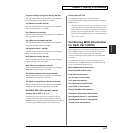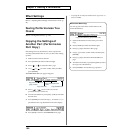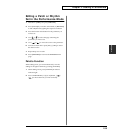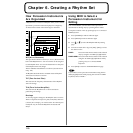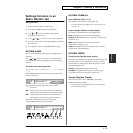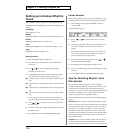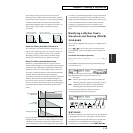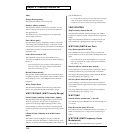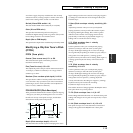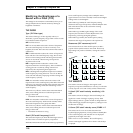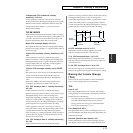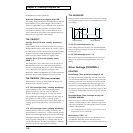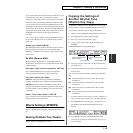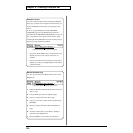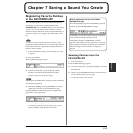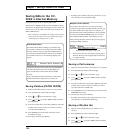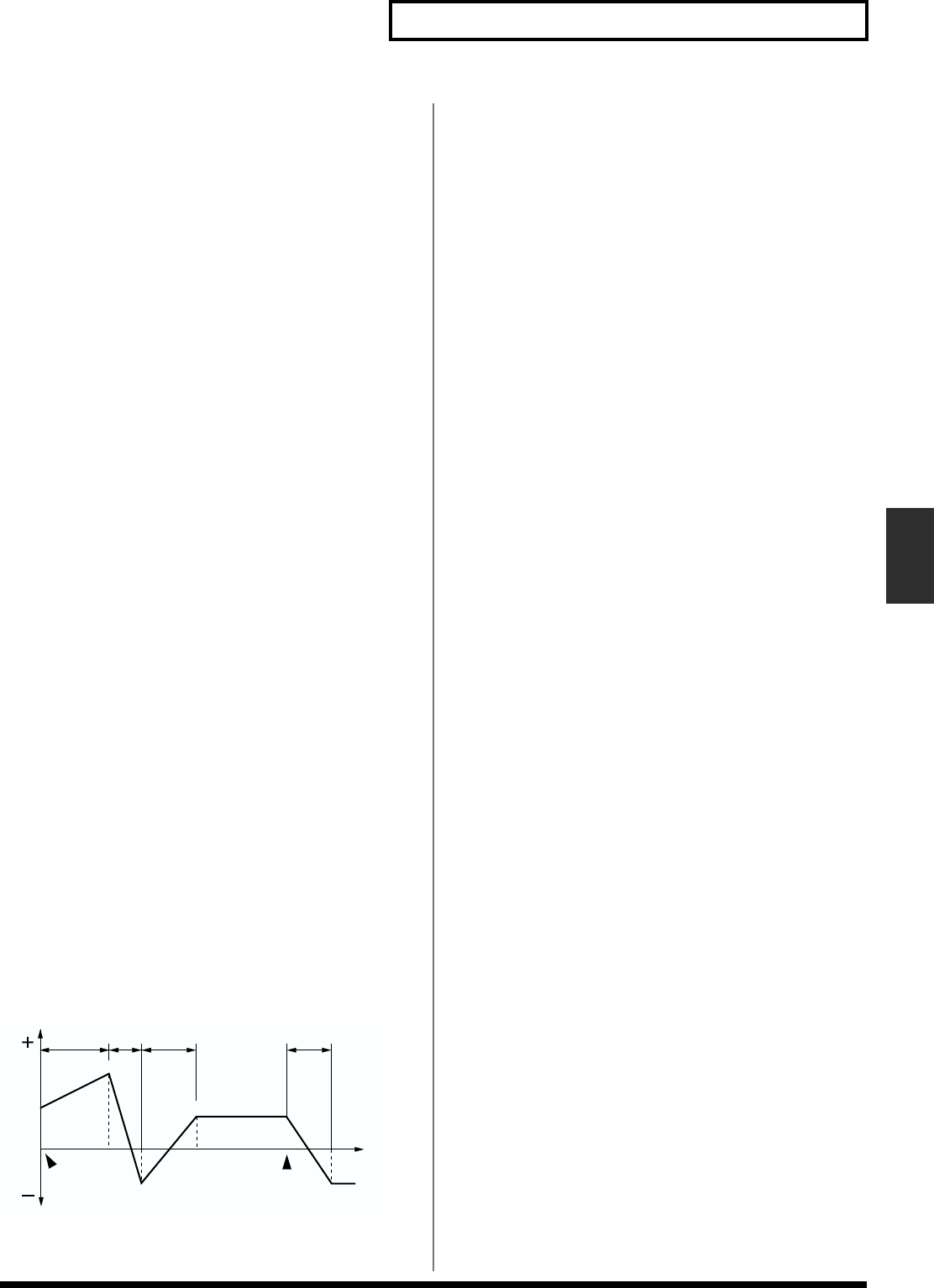
115
Chapter 6. Creating a Rhythm Set
Chapter 6
waveform to apply frequency modulation to the currently
selected waveform, creating complex overtones. This can be
useful when creating wilder sounds or sound effects.
Switch (Wave FXM switch 1–4)
This sets whether FXM will be used (ON) or not (OFF).
Color (Wave FXM color)
This specifies how FXM will perform its frequency
modulation. Higher settings result in a grainier sound, while
lower settings result in a more metallic sound.
Depth (Wave FXM depth)
This specifies the depth of the modulation produced by FXM.
Modifying a Rhythm Tone’s Pitch
(PITCH)
PITCH (Tone pitch)
Coarse (Tone coarse tune) C-1 to G9
This selects the basic pitch at which the percussion
instrument sound will play.
Fine (Tone fine tune) -50–+50
This adjusts the pitch of the percussion instrument sound in
1-cent steps (1/100th of a semitone) over a range of half a
semitone up or down.
Random (Tone random pitch depth) 0–1200
This specifies the width of random pitch deviation that will
occur each time a key is pressed. If you don’t want random
pitch changes, set it to 0. The parameter can be adjusted in
units of 1 cent (1/100th of a semitone).
PCH ENVELOPE (Pitch Envelope)
These parameters determine the amount of pitch enveloping
– changes to your basic pitch settings that occur over time –
the effect of velocity on the pitch envelope, and the basic
characteristics of the pitch envelope itself.
fig.6-08.e
Depth (Pitch envelope depth) -12–+12
This determines the amount of pitch enveloping to be used –
higher settings result in more extreme enveloping. Negative
(-) settings invert the direction of the changes made by the
Pitch Envelope.
V-Sens (Pitch envelope velocity sensitivity)-63–
+63
Adjust this parameter when you want your keyboard
playing dynamics (velocity) to affect the amount of pitch
enveloping. With higher settings, there will be a greater
difference in the amount of enveloping when notes are
played softly or when they’re played hard. Negative (-)
settings will reverse the direction of change.
V-T1 (Pitch envelope time 1 velocity
sensitivity) -63–+63
Use this parameter when you want keyboard playing
dynamics (velocity) to affect T1 (Time 1) of the pitch
envelope. With higher settings, the T1 value will change
more significantly depending on whether you play softly or
with greater force. With positive (+) settings, greater
keyboard velocity will reduce the T1 setting. With negative (-
) settings, greater keyboard velocity will increase the T1
setting.
V-T4 (Pitch envelope time 4 velocity
sensitivity) -63–+63
Use this parameter when you want keyboard playing
dynamics (velocity) to affect T4 (Time 4) of the pitch
envelope. With higher settings, the T4 value will change
more significantly depending on whether you play softly or
with greater force. For positive (+) settings, keyboard
velocity will reduce the T4 setting. For negative (-) settings,
keyboard velocity will increase the T4 setting.
L0 (Pitch envelope level 0) -63–+63
This sets the amount of change applied to the Rhythm Tone’s
basic pitch when a key is first pressed.
T1–T4 (Pitch envelope time 1–4) 0–127
These settings determine the times over which the basic pitch
settings will change from one pitch envelope level (L1–L4) to
the next.
L1–L4 (Pitch envelope level 1–4) -63–+63
Each pitch envelope level value determines an amount of
change to be applied to the Rhythm Tone’s basic pitch.
T1 T2 T3 T4
L3
L4
L2
L1
L0
Pitch
key is
pressed
key is
released
Time



